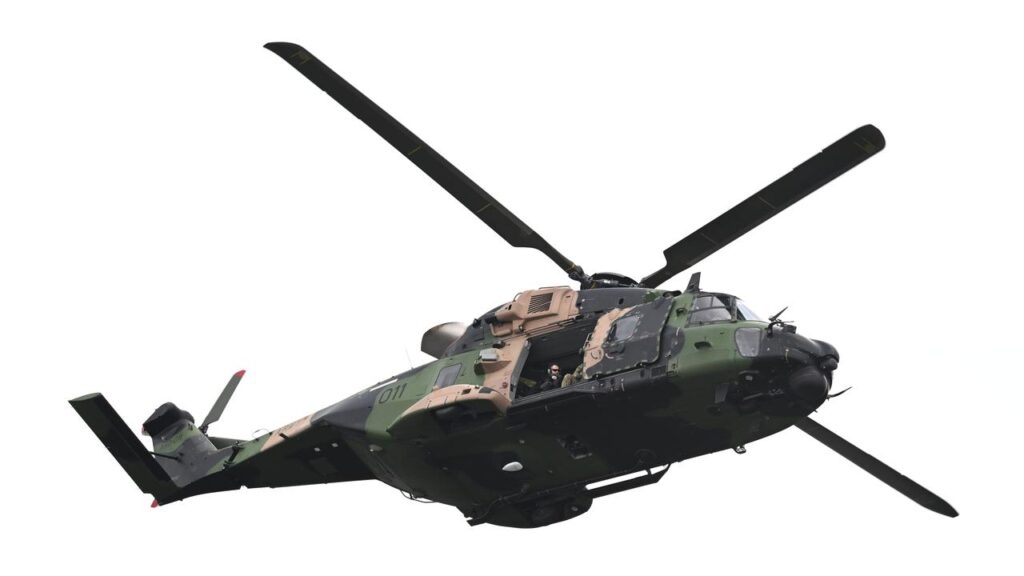Helicopter in fatal army crash a known ‘underperformer’
Lloyd Jones |

The army’s Taipan helicopters posed an “elevated risk” to personnel, a fatal crash inquiry has heard, with a former aviation commander grilled over why they were not swapped out earlier.
An Australian Defence Force inquiry into the July 2023 crash that killed four servicemen continues in Brisbane before former judge Margaret McMurdo.
The crew from the 6th Aviation Regiment based in Sydney was flying in a night training run during the ADF’s annual Exercise Talisman Sabre alongside US forces.
Captain Danniel Lyon, Lieutenant Maxwell Nugent, Warrant Officer Class 2 Joseph “Phillip” Laycock and Corporal Alexander Naggs died when their MRH-90 Taipan crashed into waters off Queensland’s Whitsunday Islands.

The inquiry in 2024 heard the crew was probably suffering from “hazardous fatigue”, with an aviation medicine expert saying it was “highly likely” that contributed to the crash.
Major General Stephen Jobson, former commanding officer of Army Aviation Command, was grilled on Wednesday about why the Taipan wasn’t pulled from service earlier following years of under-performance.
The inquiry has heard that Army Aviation was working on the “rapid replacement” of the Taipan with new US-made Black Hawk helicopters when the 2023 crash happened.
Maj Gen Jobson told the inquiry the MRH-90 was an “immature and under-performing system” and since its acquisition in 2007 had a high level of risk management.
Under questioning by counsel assisting, Colonel Jens Streit, he agreed the “demanding and underperforming” Taipan posed “an elevated risk” to personnel flying in it.

He said he was only a junior officer at the time of the 2007 acquisition and he noted everyone in aviation command had worked to “the very best of their ability” to operate the helicopter successfully.
But over time it became apparent, following groundings of the aircraft and ongoing problems, that successful operation of the MRH-60 was unlikely, Maj Gen Jobson said.
He admitted he was “never comfortable” with the safety risk of the Taipan but strong efforts were made to eliminate or at least minimise that risk.
The Taipans were under “significant operational imperatives” to service defence force requirements, including disaster response, Maj Gen Jobson said.
Taipan crews risked their own lives to save more than 100 people during flooding in eastern states, he said.
The inquiry heard that a review of army aviation by retired air chief marshal Angus Houston in 2016 identified significant challenges and recommended the Taipan should not be deployed to the 16th aviation regiment – but it was.
When asked why the Taipan was not swapped out earlier, Maj Gen Jobson said their retention was a “practicable outcome” with a lot of work put in to make it successful, which in the end was not achieved.
On the issue of fatigue he said he responded to feedback from personnel about pressures by cancelling or deferring non-essential tasks to reduce demands on people that could lead to fatigue.
“We were executing improvement to our policy in relation to fatigue.”
The major general said those killed in the 2023 Taipan crash were “the finest of Australians” and their loss was a “great tragedy”.
“That night we lost four good men.”
AAP